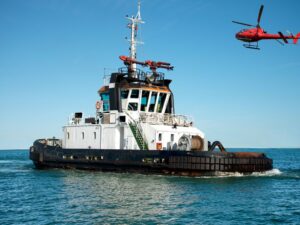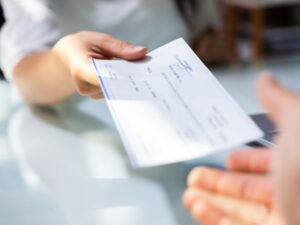Boating is a beloved recreational activity enjoyed by millions of people worldwide. Whether it’s cruising on a tranquil lake, fishing in a serene river, or sailing along the open sea, being on the water offers a unique sense of freedom and tranquility. However, beneath this idyllic façade lies a sobering truth: accidents on the water can be just as devastating as those on land, if not more so. Suppose you or a loved one has been unfortunate enough to be involved in a boat accident. In that case, you likely have pressing concerns about your well-being, the aftermath of the incident, and perhaps most importantly, the compensation you may be entitled to.
Understanding the intricacies of boat accidents and the compensation available can be complex and daunting. If you or a loved one were injured in a boating accident and need to know what compensation you can get if you are injured in a boat accident, Regan Zambri Long is here to help.
We’ve helped injured victims secure compensation for their losses and we can do the same for you.
Contact Us Today to Schedule
a Free Consultation
Boating accidents, although less frequently reported in the media compared to road accidents, can result in severe injuries, emotional trauma, and significant financial burdens. Understanding the key factors surrounding boat accidents is essential for comprehending the compensation options available.
Some of the most common causes of boat accidents include:
 Operator Negligence: One of the leading causes of boat accidents is operator negligence. This negligence can take various forms, including distracted or impaired operation, failure to follow navigation rules, and inexperience in handling the vessel.
Operator Negligence: One of the leading causes of boat accidents is operator negligence. This negligence can take various forms, including distracted or impaired operation, failure to follow navigation rules, and inexperience in handling the vessel.Boating accidents not only share similar causes as automobile collisions, but they also can cause severe injuries. Common injuries in boating accidents that can impact the compensation of a claim include:
Understanding these common causes and potential consequences of boat accidents is the first step in realizing the importance of compensation for victims.
Understanding who is responsible for a boat accident is crucial in determining the compensation available to victims. Liability in boat accidents can be attributed to various factors, and it often involves multiple parties.
Factors utilized to determine liability in boating accidents are:
It is important to understand the role of negligence when discussing liable parties in a boat wreck. Negligence refers to the failure to exercise reasonable care, resulting in harm to others. In the context of boat accidents, negligence can encompass actions like reckless boating, operating under the influence of alcohol or drugs, or failing to take proper safety precautions.
Negligent actions that can lead to boat accidents include:
Understanding the concept of negligence and how it relates to boat accidents is essential when determining liability and pursuing compensation. Negligence often plays a central role in legal claims arising from boat accidents.
In the realm of boating accidents, the concepts of comparative negligence and contributory negligence play a pivotal role in determining liability and compensation. These legal doctrines are used to assess the degree of fault or negligence of each party involved in an accident.

Under comparative negligence, each party involved in the accident is assigned a percentage of responsibility based on their actions or negligence. This percentage represents their share of the blame for the accident.
The compensation awarded to the injured party is then reduced by their percentage of fault. For example, if the injured party is found to be 20% at fault for the accident, their compensation will be reduced by that amount.
Contributory negligence is a stricter legal doctrine that, in some jurisdictions, can completely bar an injured party from recovering any compensation if they are found to have contributed in any way, even minimally, to the accident.
In contributory negligence states, if the injured party is found to have contributed to the accident, even if their contribution was minimal compared to the other party’s negligence, they may be barred from seeking compensation.
This doctrine is less forgiving than comparative negligence and places a heavier burden on the injured party to prove they were entirely blameless for the accident.
In the context of boating accidents, understanding whether your jurisdiction follows a comparative or contributory negligence system is crucial. Consulting with a legal expert like Regan Zambri Long can help victims navigate the complexities of these doctrines and maximize their chances of obtaining fair compensation.
Boat accidents can result in a wide range of injuries, both physical and psychological. When you or a loved one is involved in such an incident, understanding the types of compensation available is essential for alleviating the financial burdens that often accompany these traumatic events.
Compensation available to injured victims in boating accidents includes:
To secure compensation, it’s essential to consider insurance coverage, both your own and that of the at-fault party. Here are some key insurance types to be aware of:
Understanding and maximizing your insurance coverage is critical for securing compensation after a boat accident.
Boat accidents can lead to complex legal scenarios, and understanding the legal aspects is crucial for ensuring that victims receive the compensation they deserve. This is where a personal injury attorney comes in.
Boat accident victims often find it challenging to navigate the legal complexities and negotiate with insurance companies effectively. Hiring a skilled personal injury attorney is crucial because they can:
Regan Zambri Long is an experienced legal firm known for its expertise in boat accident cases. With a deep understanding of maritime law, they can provide invaluable support and advocacy to ensure you receive the compensation you deserve.
Not only do they know maritime law, but also of legal precedent on land surrounding timeframes in which claims need to be made. Boat accident victims need to be aware of the statute of limitations, as it varies by jurisdiction and can range from one to several years after the date of the accident. Failing to file a claim within this timeframe may result in the forfeiture of your right to seek compensation.
Your boat accident lawyer will also help build a strong case for compensation after a boat accident through evidence gathering and documentation including:
Navigating the legal aspects of a boat accident claim can be complex, and the guidance of a qualified attorney like those at Regan Zambri Long can make a significant difference in the outcome of your case.
While pursuing compensation for boat accident injuries is essential, it often involves overcoming various challenges. Understanding these obstacles can help you navigate the process more effectively and anticipate potential roadblocks.
As discussed earlier, many jurisdictions employ a comparative negligence system. Under this system, the compensation awarded to the injured party is reduced by their percentage of fault for the accident. Challenges related to comparative negligence include:
Boat accident victims also often need to interact with insurance companies to seek compensation. Challenges associated with this process include:
In some boat accidents, multiple parties may share responsibility, making liability complex to establish. Challenges in multi-party cases include:
Despite these challenges, pursuing compensation for boat accident injuries is essential for your recovery and financial stability. Enlisting the help of an experienced personal injury attorney, like those at Regan Zambri Long, can significantly enhance your chances of successfully overcoming these obstacles and securing the compensation you deserve.
When the tranquility of a day on the water turns into the turmoil of a boat accident, the aftermath can be overwhelming. You may be grappling with injuries, mounting medical bills, and uncertainty about your future. In such challenging times, seeking the compensation you deserve becomes not just a right but a necessity.
Now, as you stand at a crossroads in your journey toward recovery and justice, we strongly encourage you to take action. There are resources available to assist you, and you have the right to pursue justice and fair compensation.
Regan Zambri Long is a team of dedicated and experienced personal injury attorneys with a proven track record in boat accident cases. Their expertise, commitment, and advocacy have helped countless victims secure the compensation they needed to rebuild their lives.
By connecting with Regan Zambri Long, you are not just seeking legal representation; you are aligning yourself with a team of professionals who will fight tirelessly on your behalf. They understand the nuances of boat accident claims, the challenges you may face, and the strategies needed to secure a favorable outcome.
Don’t let the complexities of the legal system or the tactics of insurance companies stand in your way. Take the first step towards justice and financial recovery by contacting Regan Zambri Long. Your future and well-being deserve nothing less than the best legal support available. Many personal injury law firms work on a contingency fee basis which means you pay nothing until your case is settled or a verdict is reached–meaning you have nothing to lose and everything to gain.
Remember, you have the power to turn the tide in your favor. With Regan Zambri Long by your side, you can chart a course towards a brighter and more secure tomorrow.
If you or a loved one were injured in a boat accident and need help securing compensation for your injuries, contact Regan Zambri Long for a no-obligation, free consultation.